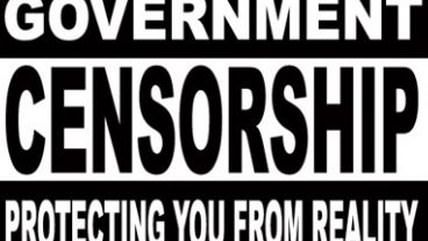Australia Attempts Targeted Internet Censorship, Blocks 250,000 Websites By Accident


The land downunder has long been a bit more censor-y than you'd expect from your average English-speaking democracy, especially when it comes to the nasty, nasty Internet. But just because government officials set out to keep the world safe from words and images they don't like doesn't mean they do it well. After concluding that it had the authority to impose Internet censorship on its own without any special legislative authorization, the Australian Securities & Investments Commission ordered ISPs to block Websites suspected of defrauding Australians. It ordered the ISPs to do so not by domain name, but by IP address, which blocks the whole server hosting a Website, as well as any other Websites also hosted.
From the Sydney Morning Herald:
Australia's corporate watchdog has admitted to inadvertently blocking access to about 250,000 innocuous websites in addition to the 1200 it had already accidentally censored.
ASIC made the concession in a statement at a senate estimates hearing on Tuesday night, after it caused controversy by interpreting a 15-year-old law in the Telecommunications Act as giving it the ability to block websites.
The largest number of sites censored when attempting to block one particular site ASIC believed was defrauding Australians was 250,000. Of these, ASIC said about 1000, or 0.4 per cent, were active sites. It said the 249,000 other sites hosted "no substantive content" or offered their domain name up for sale, rather than hosting a fully-fledged active site.
ASIC asked internet service providers (ISPs) to block sites it believed were defrauding Australians by IP address (such as 203.56.34.11) instead of domain name (such as sitedefraudingaustralians.com). This meant thousands of other sites were blocked in the process, as many sites are often hosted on one shared IP address.
ASIC told senate estimates in its opening statement that it was now examining how it could ensure only a site's specific domain name was blocked and ways it could alert the public to a site being blocked via a pop up page. It was also examining ways such a page could indicate why access was blocked and to whom queries could be made to dispute a block.
A right of appeal? And less indiscriminate censorship? So strict.
Apparently, ASIC's use of an obscure provision of the law to authorize itself to block websites came to light "last month after the webmasters of the Melbourne Free University site couldn't figure out why it was no longer accessible. After making a number of inquiries to their ISP, the webmasters were told that the Australian government had blocked access to the site. The ISP wouldn't provide any more detail." Other federal agencies have reportedly been doing the same thing though details, as you might expect, are hard to come by.
(H/T: Invisible Furry Hand)


Show Comments (19)